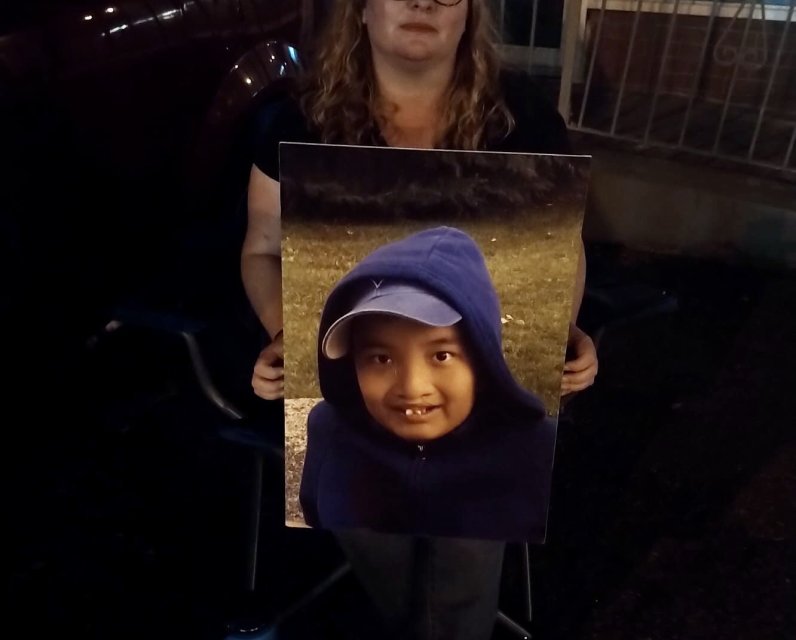Unpublished Opinions
Syndicated #cdntech #cdnpoli #onpoli blogger. Cutting out the political spin to get the info that matters. Retired EDM DJ. Father to a son with autism.
Twitter: @jkobopoli
Contact E-mail: jkobopoli at rogers dot com
Parents Shouldn't Have to Beg for Support in Canada

Authorized by Jason Koblovsky
Meet Stacy Kennedy. Stacy is an Ontario mother with a son who has complex medical needs and is autistic. Her son's name is Sam and right now Sam needs behavioural support in order to gain access to surgeries, and other services through Sick Kids. Stacy is currently camped out in front of Ontario Premier Doug Ford's office to beg for behavioural therapy for her son so that he can go and get life saving surgeries. While Stacy has been camped in front of Ford's office fighting for her son to live, Ford was seen recently attending to more important matters of provincial leadership like selling cookies for Tim Horton's. And no it's not political satire, I wish it were.
As a caregiver you go up against a system that by design is set up to discriminate against those it's meant to support and their families. I've written about this several times on this blog. I recently came across another caregiver who is well into her 60s and she is still fighting the system when it comes to the rights of her disabled child. It's become too normalized and expected that us families have to fight a constant battle against our health care system to support our loved ones or even us caregivers. In 2021 this is not normal, and it's illegal. It's a form of discrimination.
As parents we shouldn't have to have the extra burden of advocating a system of supports, especially with medically fragile children. We got enough on our plates. It is not fair or acceptable under any circumstances to place an unwarranted burden of your child being discriminated against by elected officials or within the system of support. This must stop. The very first section of the Ontario Human Rights Code states:
1. Every person has a right to equal treatment with respect to services, goods and facilities, without discrimination because of race, ancestry, place of origin, colour, ethnic origin, citizenship, creed, sex, sexual orientation, gender identity, gender expression, age, marital status, family status or disability. R.S.O. 1990, c. H.19, s. 1; 1999, c. 6, s. 28 (1); 2001, c. 32, s. 27 (1); 2005, c. 5, s. 32 (1); 2012, c. 7, s. 1.
Article 5 of the UN Convention on the Rights of People With Disabilities [CRPD] (in which Canada is a signatory) states (emphasis added):
1. States Parties recognize that all persons are equal before and under the law and are entitled without any discrimination to the equal protection and equal benefit of the law.
2. States Parties shall prohibit all discrimination on the basis of disability and guarantee to persons with disabilities equal and effective legal protection against discrimination on all grounds.
3. In order to promote equality and eliminate discrimination, States Parties shall take all appropriate steps to ensure that reasonable accommodation is provided.
4. Specific measures which are necessary to accelerate or achieve de facto equality of persons with disabilities shall not be considered discrimination under the terms of the present Convention.
Having to advocate this broken system of supports does interfere with family life and enjoyment of a child with a disability. Article 7 the CRPD states (emphasis added):
1. States Parties shall take all necessary measures to ensure the full enjoyment by children with disabilities of all human rights and fundamental freedoms on an equal basis with other children.
2. In all actions concerning children with disabilities, the best interests of the child shall be a primary consideration.
3. States Parties shall ensure that children with disabilities have the right to express their views freely on all matters affecting them, their views being given due weight in accordance with their age and maturity, on an equal basis with other children, and to be provided with disability and age-appropriate assistance to realize that right.
Article 25 of the CRPD deals with the rights to equable health care (emphasis added):
States Parties recognize that persons with disabilities have the right to the enjoyment of the highest attainable standard of health without discrimination on the basis of disability. States Parties shall take all appropriate measures to ensure access for persons with disabilities to health services that are gender-sensitive, including health-related rehabilitation. In particular, States Parties shall:
a) Provide persons with disabilities with the same range, quality and standard of free or affordable health care and programmes as provided to other persons, including in the area of sexual and reproductive health and population-based public health programmes;
b) Provide those health services needed by persons with disabilities specifically because of their disabilities, including early identification and intervention as appropriate, and services designed to minimize and prevent further disabilities, including among children and older persons;
c) Provide these health services as close as possible to people’s own communities, including in rural areas;
d) Require health professionals to provide care of the same quality to persons with disabilities as to others, including on the basis of free and informed consent by, inter alia, raising awareness of the human rights, dignity, autonomy and needs of persons with disabilities through training and the promulgation of ethical standards for public and private health care;
e) Prohibit discrimination against persons with disabilities in the provision of health insurance, and life insurance where such insurance is permitted by national law, which shall be provided in a fair and reasonable manner;
f) Prevent discriminatory denial of health care or health services or food and fluids on the basis of disability.
The Ministry of Community and Social Services in Ontario responded to Stacy's camp out in front of Ford's office with the following statement:
"We are fixing a broken system to ensure that no child is left unsupported. While it would be inappropriate to discuss individual cases, rest assured that the minister has directed her ministry to work with all families who need support," she said. "Both the minister and ministry officials are in regular contact and consultations with families and advocates to ensure that the Ontario Autism Program supports the needs of children and their families."
Ford stated that he wouldn't mandate vaccines for front line and educational staff during the pandemic because he was concerned about violations of human and civil rights. Why are the disabled in this province not afforded the same recognition of their human rights protections? Why is it acceptable to infringe on the rights of the disabled, and in the same breath support the rights of those who refuse to get vaccinated?
If the Ministry of Children, Community and Social Services were consulting with families, the Ontario Autism Program would respect the Ontario Human Rights code, the CRPD, and parents wouldn't have to camp out in front of Ford's office. It's time the government stops discriminating against the disabled in this province and their families.
As the people of Ontario vote this Monday in the federal election, please note the face of Conservative leadership in Ontario. A friendly reminder of that looks like:




Comments
Be the first to comment